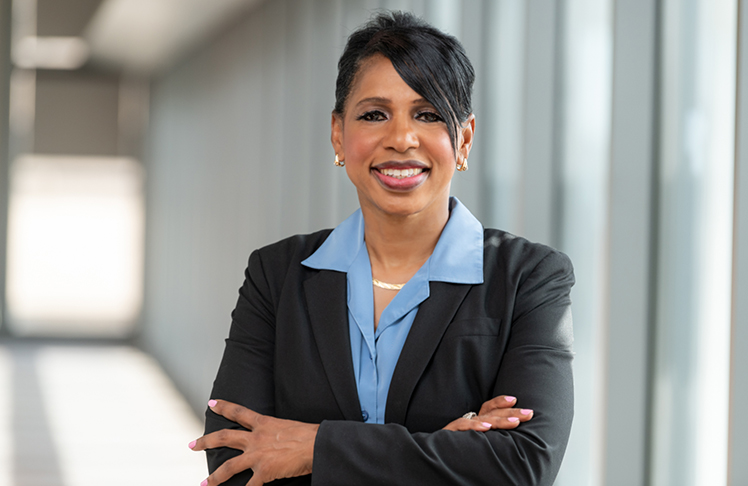
By Carmen Best, Former chief of the Seattle Police Department
In recent weeks, like so many, I have been glued to my TV and social media monitoring the war in Ukraine. I know we have all been impressed by the courage and perseverance of the Ukrainian people and their leaders.
I have been especially touched by the sacrifices and strength of the women of Ukraine. From the First Lady supporting and echoing the leadership of President Zelensky, to the women members of Parliament, to the mothers leading their families to safety, or the most heartbreaking but remarkable, the women who have sent their children to safe locations while they remain, to report, to help, and to fight for their country and for western democracy.
From the stories I have seen in these startling weeks — I can only think that YES, WOMEN CAN.
These stories, and my story — the women I’ve met, the women who have mentored me, the experiences I’ve personally had, as well as the friends I cherish, and the women I am lucky to count as my daughters — they all tell me we need more women leaders, in policing, in the public sector, and in government.
In good times, in bad times, in peace and in war, women step up and keep families together. Ever since we won the right to do so, we stand up and lead our communities.
This has made me consider more in-depth the role and promise of women in policing. It brought me to think back to one of my first calls as an officer. I can still remember the look on the woman’s face — she had called the police to report a delayed burglary. I hadn’t thought about it as I approached the door, but she was clearly expecting to see a male officer, likely a white one, when she answered the door.
Instead, she got me. A petite, young, Black woman.
I didn’t react to her obvious surprise — I was a new officer there to do a job. In retrospect, had I chosen to “teach her a thing or two,” I’m almost certain it wouldn’t have made a difference, and it likely would have made things worse. She was reacting to what she saw as an abnormal situation. There were a handful of female officers in Seattle at the time, and even fewer Black women or women of color. This was likely one of her few interactions with the police, so it probably was surprising to see me on her doorstep.
Roughly 25 years later, I do not think that same woman would have been surprised to see me become the Chief of Police for the Seattle Police Department. Our society has changed over the last couple decades since I showed up to the call at her home. Women, African Americans, people of color — and especially women of color — spent those almost three decades doing the work and showing that not only did they deserve to be in those roles, so often, their participation in our institutions make them better.
In my career as a police officer, time and again, I experienced discrimination — both inside the department and outside from the public we served. In calls like that woman’s or hearing the talk from men in the academy that there was no way the women were going to be able to handle the physical requirements of the exam — or, just the basic day-to-day comments any person of color or a woman hears that are meant to “put us in our place.”
As with anything, time and the perspective that come with age made me realize in so many of these instances, the person wasn’t intent on being a bad person. And, had I reacted strongly, I likely would have done little to change their mind or make them rethink their perspective.
I think that’s part of what our greatest challenge is right now as a country. For some reason, we do not give people the benefit of the doubt. We do not assume people are generally well-intentioned, even we if vehemently disagree with their perspective.
Rather than calling people out for every perceived transgression — we need to buckle down and make positive change, together.
Society changes. Things get better. MLK’s arc continues to bend toward justice.
The field of policing is one ripe for this change. Currently, there is a campaign, the 30×30 campaign — a commitment by police departments to try innovative things to have 30% of their sworn personnel be women by 2030. Right now, nationally, on average, about 15% of sworn officers are women. It is a lofty goal, but it is an important one. In examining social science research and thinking of my personal experiences and those of my friends and family – I see evidence of it everywhere:
• In policing: Women are less likely to use force, and departments with more women are more likely to have formal policies about engaging community and being transparent.
• In medicine: Patients with women doctors report feeling more heard – and they are less likely to return to the hospital or die after discharge.
• In law: Women outperform men in the courtroom.
You see it again and again — and when you think about your life you can start to think of reasons why. For so long, we’ve been expected to manage the family, the house, and in recent history a job, too. We have to navigate interpersonal issues at work to ensure we aren’t perceived as incompetent.
It’s not that men can’t do these things — I know plenty who can. It’s that women are expected to do these things if they want to succeed. It is time for our organizations, particularly policing, to take advantage of these learned behaviors and skills. Women can be the change that policing needs – I have seen it with my own eyes. I have lived it.












